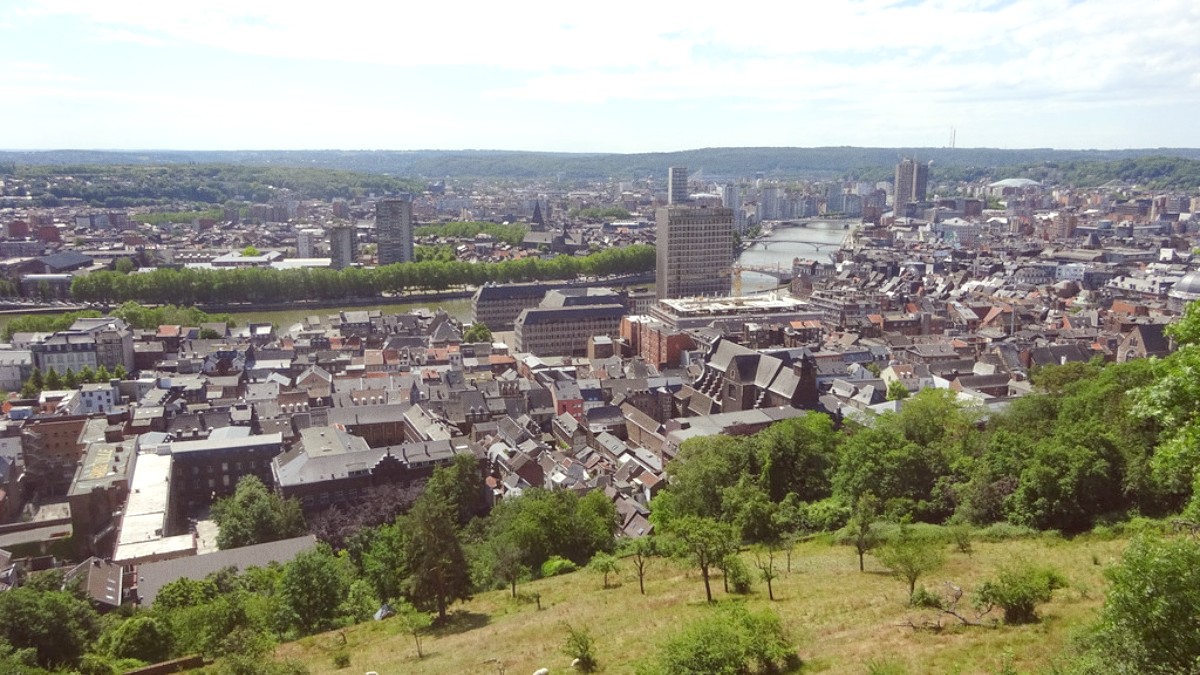
Wallonia, Belgium
Walloon cuisine traditionally uses generous portions and emphasizes slow-cooked dishes. It historically relied on local agricultural products, game from the Ardennes, and regional brewing traditions.
Liège developed its own specialties, often using the local "sirop de Liège" (thick, dark fruit syrup) which lends a sweet-savory depth. The cuisine presents a no-nonsense approach to food, focusing on flavor and satisfaction.
Reservations are advisable for dinner, especially on weekends or at popular restaurants. Service charges are typically included, so tipping is not mandatory. Rounding up the bill for excellent service is common.
Bread usually comes with meals and often has a small charge.
Wait to be seated in most sit-down restaurants. Keep your hands visible on the table, not in your lap, during meals.
Large, savory meatballs (pork and beef mix) in a rich, sweet-savory brown sauce. The sauce uses Sirop de Liège (apple and pear syrup), onions, and sometimes vinegar. Served with crispy Belgian fries.
Find in almost every traditional brasserie and local restaurant.
Denser, chewier, irregularly shaped. Made from brioche-like dough with pearl sugar chunks. Sugar caramelizes during baking, making a sweet, slightly crispy exterior. Served warm, plain, or with powdered sugar.
Find from street vendors throughout the city, especially in tourist areas and train stations. Also in dedicated waffle shops.
Thick, dark brown syrup from slow-cooked apples and pears (sometimes with dates). A staple in Liègeois kitchens, used in savory dishes (like Boulets) or as a spread on bread or with cheeses.
Purchase bottles in local supermarkets, specialty food stores, and souvenir shops.
Liège waffles and Belgian fries are the most prominent and delicious street food items. Quick, affordable, authentic local flavors for a snack or casual meal. During market days, other prepared foods may appear.
Belgium is world-renowned for its beer. Liège has a wide selection of local Liège breweries' beers and regional Walloon beers (blonde, brune, tripels, dubbels). Peket is the local spirit. Coffee is also widely consumed.
Liège has several restaurants presenting refined Belgian and international cuisine, often with a focus on seasonal and local ingredients. For special occasions, research restaurants with recognition from guides like Michelin or Gault & Millau.
Numerous brasseries, bistros, and traditional Belgian restaurants provide a good balance of quality food, comfortable ambiance, and reasonable prices. Many specialize in regional dishes, serving classic Liègeois and Walloon fare.
Friteries (fry shops) are ubiquitous, providing affordable, filling meals of Belgian fries and other fried snacks. Sandwich shops and bakeries are good for quick, inexpensive lunch. Small cafes serve light meals.
Liège, a diverse city, includes a wide array of international restaurants.
Find Italian, French, Asian (Chinese, Thai, Japanese, Vietnamese), Middle Eastern, and other global cuisines. This selection presents alternatives if you desire a change from traditional Belgian fare.
Whether you seek a familiar taste or an exotic new experience, Liège's international dining scene accommodates many palates.
Explore different flavors and culinary traditions from around the world.
Vegetarian options are increasingly available. Vegan options are more limited but growing. Use HappyCow for vegan-friendly spots.
Awareness of "sans gluten" is growing. Many restaurants accommodate requests. Clearly inform staff of dietary restrictions.
Halal options available in diverse neighborhoods. Kosher availability is very limited in Liège.
Carry a small travel translation guide or use a Translation app for clear communication.
Search for small, rustic pub-restaurants, especially in the Outremeuse district. These establishments present an authentic, local ambiance, serving traditional dishes and regional beers and peket.
They provide a glimpse into everyday Liègeois life and hospitality.
While a market, it is also an unique "dining" experience. Stroll through, sample street food, and observe locals. This market provides a genuine local experience.
Europe's oldest and largest market, held every Sunday morning along the Meuse River.
Liège waffles and Belgian fries are the most prominent and delicious street food items. They offer quick, affordable, and authentic local flavors, perfect for a snack or a casual meal on the go.
Belgium is renowned for its diverse beer culture. In Liège, find a wide selection of local Liège breweries' beers and regional Walloon beers. Styles include blonde ales, brune (dark) ales, tripels, and dubbels. Many bars present extensive beer menus.
Some local cooking schools or private chefs conduct classes focusing on Belgian or Walloon cuisine.
Guided food tours of Liège are available. These tours take you to local markets, traditional eateries, and specialty shops.
The surrounding Wallonia region is largely agricultural. Opportunities for farm visits, cheese tastings (like Herve cheese), or discovering local cider and beer producers are found in the countryside.
The main sweet snack and dessert, often eaten plain or with a light dusting of powdered sugar. A must-try street food item.
Available from street vendors and dedicated waffle shops.
Spiced shortbread biscuits, especially popular around the end of the year but available year-round. They feature a distinct caramelized flavor.
Found in bakeries and supermarkets.
Held annually in mid-September, this festival celebrates Walloon culture and identity. A prime time to experience the Liègeois spirit through food and drink.
In December, Liège hosts one of Belgium's largest and most popular Christmas markets. Expect special festive foods and drinks, traditional mulled wine, and seasonal pastries.
During autumn, local produce like apples and pears peak, appearing in many desserts and savory dishes, reflecting the season's bounty.
Always try to support local eateries and food producers.